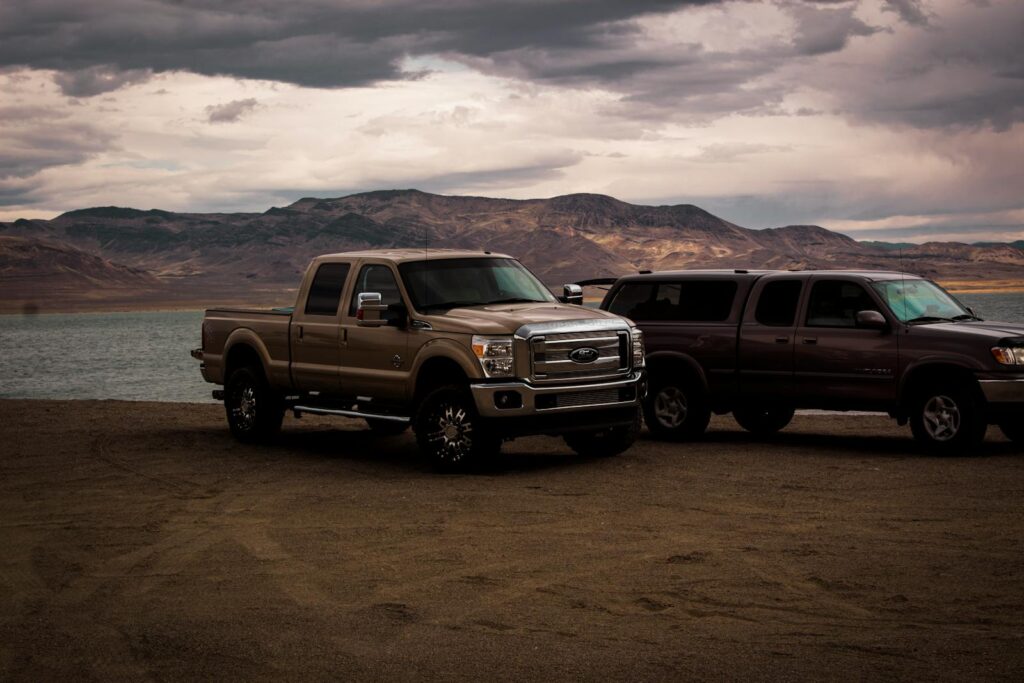Many would tell you that the pickup truck is a symbol of American culture, a means of adventure and independence. It was a love story that started in our early years for the majority of us. These were powerful machines that accomplished a great deal, and our love became stronger over time. The Ford F-Series, Chevy Silverado, and Ram Pickup were the top three bestsellers in the United States in 2022. More precisely, the Ford F-Series has led the industry since 1977, demonstrating the longevity of Americans’ passion for cars of this nature.
Development of the Pickup Truck
The pickup truck’s excursion from a utilitarian work vehicle to a family-accommodating vehicle is an account of change. During the 1960s, Passage’s pickup trucks had a more prominent taxi to-bed proportion, with the taxi involving 36% of the vehicle and the bed 64%. This plan took special care of the trucks’ essential capability: pulling and towing. Be that as it may, by the 21st century, this proportion had flipped, with the Passage F-150’s taxi presently taking up 63% of the truck and the bed decreasing to 37%. This shift mirrors an adjustment in how trucks are utilized, creating some distance from simply running business-related errands to turning into a piece of the family’s regular routine.
The development of pickup trucks isn’t just about size and space; it’s additionally about innovation and solace. Present-day trucks are essentially greater, heavier, and more mechanically advanced than their ancestors. They’ve become something other than vehicles; they’re an assertion, a direction for living that offers a feeling of force and roughness to their proprietors.
Changing Utilization Examples
In any case, how might these developments affect the real utilization of pickup trucks? A study by Axios uncovered an astonishing pattern: a critical part of current pickup truck proprietors once in a while, if at any time, utilize their vehicles for conventional truck undertakings like pulling and towing. All things considered, these trucks are all the more generally utilized for shopping, getting things done, and driving. The review, which overviewed F-150 proprietors with model years going from 2012 to 2021, found that 87% habitually utilize their trucks for shopping and tasks, 70% for joy driving, and 52% for driving. Conversely, just 28% of the time, they utilize their trucks for individual pulling, and a simple 7% for towing.
This information brings up a charming issue: in the event that pickup trucks are being utilized for regular errands, why not choose a minivan, vehicle, or SUV? The response, subject matter authorities agree, lies in the picture and character that truck proprietors need to project. The expressions ‘strong’ and ‘tough’ are frequently connected with pickup trucks and, likewise, their proprietors. It’s these attributes that many truck proprietors wish to exemplify through their vehicles. Additionally, the sense of freedom and adventure associated with pickups plays a significant role.

A Case in Point: Why Americans Choose Trucks over Any Other Vehicle Type
Not only is it a means of moving from point A to point B, but it symbolizes the cultural idea of Americanism—liberty, power, and practicality. Probably, in this section, one would really find the reasons for such undying popularity of pickup trucks in cultural, emotional, and practical perspectives. The pickup truck embodies the spirit of the American frontier, where ruggedness and self-reliance are highly valued.
One of the major reasons pickup trucks attract so many Americans, unlike other vehicles, is the power and control they exude. From the heightened driving position down to the sturdy construction of a vehicle able to handle such challenging roadways, drivers get the feeling of being in charge on the road. It’s not just being in a vehicle physically able to do things most others can’t; it’s psychological. Anybody who drives a pickup just feels invincible, ready for any challenge that crosses his way. This sense of invincibility is a key factor in their enduring appeal.
It’s the versatility of pickup trucks, primarily. They are designed as multi-purpose vehicles that can do or support many jobs. From hauling with big loads to pulling trailers, or simply giving family and friends plenty of space, pickup trucks do everything. This versatility makes a pickup truck an attractive choice for any person who desires a vehicle that will be able to adjust to their changing needs. Whether for work or leisure, pickups offer unmatched flexibility.
There’s an emotional connection with pickup trucks that’s fairly deep for a lot of Americans, which plays a big role in their popularity. Owning a pickup truck can mean so much more than having just a vehicle to many people; it is a part of one’s identity. It shows your lifestyle, interests, and possibly what you want to achieve in life. The truck is a part of one’s extended self-expression, displaying the character and values of a person. This emotional bond is what acts as a strong motivator in picking pickup trucks over other types of vehicles.
Besides emotional reasons related to culture, here are a number of practical reasons for the popularity of pickup trucks. New trucks are large and comfortable, which bodes well for everyday use—commuting to and from work, along with other errands. Thereby, the change from a purely work vehicle to a family transport vehicle enhances the appeal of pick-up trucks to the wider horizons of other consumers.

Wellbeing and Ecological Worries
The Axios highlight by Will Pursue, Jared Whalen, and Joann Muller features the tremendous changes in the pickup truck market. During the 1980s, little and medium-size trucks were common; however, by 2010, standard-size trucks had almost consumed the market. The typical load of pickups has expanded by 32% since around 1990, influencing people’s foot wellbeing and impact results. Vehicle drivers are 2.5 times more likely to pass on while crashing into a pickup compared with another vehicle, a measurement that is considerably more worrying than SUV impacts.
The natural effect of this pattern is likewise eminent. As Americans create some distance from cars for trucks and SUVs, the ramifications for eco-friendliness and outflows are critical. The inclination for bigger vehicles is in conflict with the requirement for more manageable transportation choices. This shift has significant environmental implications, highlighting the need for more sustainable vehicle options.
The Road Ahead
The prominence of pickup trucks in the U.S. is a mind-boggling peculiarity that goes past their functional applications. It’s an impression of social qualities, individual personality, and the developing necessities of American drivers. As we keep on wrestling with the ramifications of this pattern, one thing is clear: the pickup truck is setting down deep roots, in the entirety of its curiously large brilliance.
The test for the car business and society overall will be to adjust the affection for these strong vehicles with the requirement for security and ecological maintainability. The street ahead might be dubious, yet one thing is certain: the American relationship with the pickup truck is not even close to finished.
The modern pickup truck has evolved into a multi-purpose vehicle that provides the conveniences and comforts of an extravagant SUV, even if its towing capacities are only occasionally used. This shift in perception and use reflects a broader shift in American consumer behavior and the auto industry’s response to it. While the utilitarian objectives for which trucks were originally designed may not provide a compelling reason for their purchase, the cutting-edge pickup truck has evolved to fulfill the many needs and desires of American consumers. The pickup truck is more than just a vehicle; it’s a statement, a way of life, and an image of the American lifestyle.
Related posts:
Study Claims That Most Pickup Truck Owners Don’t Actually Use Them For Truck Stuff
Many Pickup Truck Owners Admit They Don’t Actually Need Trucks
After driving a pickup truck for the first time, I now get why they’re the best-selling vehicles in the US



.jpg/1200px-2014_Ford_Tourneo_Courier_(fl).jpg)

